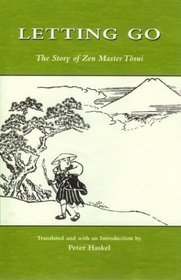 Letting Go:
Letting Go:
The Story of Zen Master Tosui
Translated, with an introduction by Peter Haskel
Univ. of Hawai’i Press: Honolulu, 2001
184 pp.; $19.95 (paper)
Here is the first translation of Menzan Zuiho’s Tribute, the biography of eccentric Zen master Tosui Unkei. Tosui abandoned the religious establishment after thirty years of srudy to lead an itinerant life among the common people of seventeenth-century Japan. The volume is enhanced by twenty original woodblock prints from the 1768 edition.
 The Places That Scare You:
The Places That Scare You:
A Guide to Fearlessness in Difficult Times
by Pema Chodron
Shambhala Publications: Boston, 2001
128 pp.; $21.95 (cloth)
From the author of the popular When Things Fall Apart, here is a book of advice on how to use difficult circumstances as opportunities to cultivate love and compassion for outselves and others. This ability is innate in us all, Chodron teaches, but we bury it under habirual patterns stemming from our fears, which in rum lead to resentment rather than kindness.
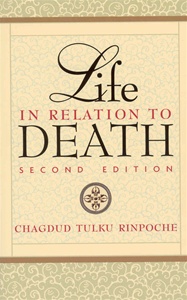 Life in Relation to Death, 2nd ed.
Life in Relation to Death, 2nd ed.
by Chagdud Tulku Rinpoche
Padma Publishing: Junction City, CA, 2000
96 pp.; $7.95 (paper)
Originally printed as a booklet in 1987, this popular text offers a series of brief but enlightening instructions and meditations on preparing for death and the dying process. Included in the second edition are sections on executing a durable power of attorney, a living will, and a letter of instructions regarding final arrangements. 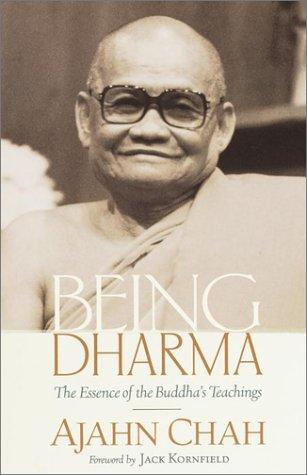 Being Dharma:
Being Dharma:
The Essence of the Buddha’s Teachings
by Ajahn Chah
Translated by Paul Breiter
Foreword by Jack Kornfield
Shambhala Publications: Boston, 2001
272 pp.; $16.95 (paper)
Paul Breiter, an American student of Thai forest master Ajahn Chah (1919-1992), has translated a sampling of the popular teacher’s discourses on how to apply Buddhism to our daily experience. These lectures comprise the heart of Chah’s teachings, which emphasize dignity and strict training with a light heart. Employing simple, precise language, his words convey his belief that liberation is possible for each of us through diligent effort and sincere intention.
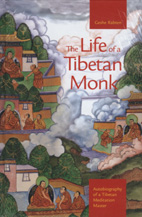 The Live of a Tibetan Monk:
The Live of a Tibetan Monk:
Autobiography of a Tibetan Meditation Master
by Geshe Rabten
Edition Rabten USA:
Les Tassonneyres, 2000
308 pp.; $26.00 (cloth)
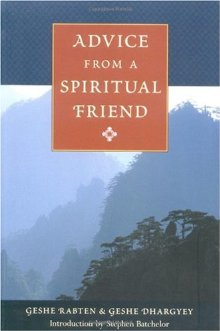 Advice From a Friend
Advice From a Friend
by Geshe Rabten & Geshe Dhargyey
Introduction by Stephen Batchelor
Wisdom Publications:
Boston, 2001
148 pp.; $15.95 (paper)
How can we free ourselves from suffering and its cause? And what does it mean in this context to be happy? The Life Story of a Tibetan Monk provides us with the remarkable story of Geshe Rabten—a story of determination, patience, and faith. As Stephen Batchelor writes in his introduction toAdvice from a Spiritual Friend, “Thought transformation challenges us to recognize how much of our suffering is generated from within our own minds.” In these two newly republished classics, we learn how to transform adverse circumstances into fuel for the spiritual path.
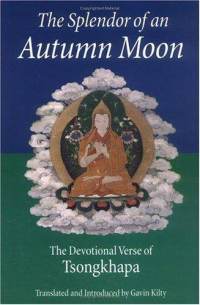 The Splendor of an Autumn Moon:
The Splendor of an Autumn Moon:
The Devotional Verse of Tsongkhapa
Translated and introduced by Gavin Kilty
Wisdom Publications: Boston, 2001
304 pp.; $16.95 (paper)
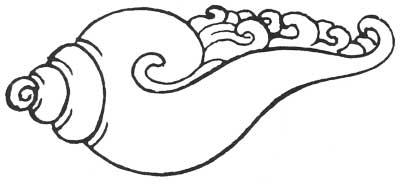 This finely translated collection of poems by Tsongkhapa (1357-1419), one of Tibet’s most renowned philosophers, is composed of such inspiring poems as “Praise of the Buddha” and “The Essence of a Human Life.” Manjushri is the personification of the Buddha’s wisdom, and in “Praise of Manjushri” Tsongkhapa writes: “To be attached to one’s own happiness / is a barrier to the true and perfect path. / To cherish others is the source / Of every admirable quality known. / By practicing again and again, therefore, / the exchange of self for others, / you held all others as self.” The radiant simplicity of these poems, their passion, theit natural ease and rhythm reveal the human being behind the legend. The Splendor of an Autumn Moon is timeless, a treasury of heartfelt devotion.
This finely translated collection of poems by Tsongkhapa (1357-1419), one of Tibet’s most renowned philosophers, is composed of such inspiring poems as “Praise of the Buddha” and “The Essence of a Human Life.” Manjushri is the personification of the Buddha’s wisdom, and in “Praise of Manjushri” Tsongkhapa writes: “To be attached to one’s own happiness / is a barrier to the true and perfect path. / To cherish others is the source / Of every admirable quality known. / By practicing again and again, therefore, / the exchange of self for others, / you held all others as self.” The radiant simplicity of these poems, their passion, theit natural ease and rhythm reveal the human being behind the legend. The Splendor of an Autumn Moon is timeless, a treasury of heartfelt devotion.
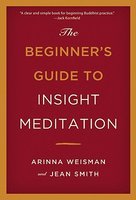 The Beginner’s Guide to Insight Meditation:
The Beginner’s Guide to Insight Meditation:
by Arinna Weisman and Jean Smith
Bell Tower: New York, 2001
256 pp.; $14.00 (paper)
This practical manual to Insight Meditation provides a straightforward guide to the Buddha’s teachings combined with advice on everything from choosing a teacher and sangha to the vipassana retreat experience. The text is enhanced by the authors’ personal accounts of the challenges and revelations of their practice experiences.
 St. Nadie in Winter:
St. Nadie in Winter:
by Terrance Keenan
Tuttle Publishing: Boston. 2001
206 pp.; $24.95 (cloth)
Rinzai Zen priest Terrance Keenan offers a literary memoir of his spiritual journey and reawakening. Combining poetry, humor, and his own insights about life and Zen practice, Keenan provides a sympathetic road map for readers struggling to understand and confront the elusive “nobody” (personified by the fictional, poetic “St. Nadie”) that resides at the heart of us all. To him, “Reality is the last nostalgia. We look upon it with hopeful sweetness, yet we grip it with the iron tenacity of desperation brought on by the terrifying accident of life.” 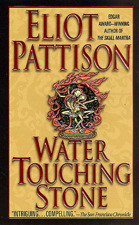 Water Touching Stone:
Water Touching Stone:
by Eliot Pattison
St. Martin’s Press: New York, 2001
416 pp.; $24.95 (cloth)
The Edgar Award-winning author of The Skull Mantra offers a rare work of fiction: a Buddhist thriller set in present-day Tibet. The plot centers on the efforts of one man, an exiled former investigator, to restore spiritual balance and seek justice following the murder of a venerated Buddhist teacher. Populated by outcasts, vengeful officials, smugglers, and secret Buddhists, and set in the remote reaches of the Tibetan plateau, Water Touching Stone is both history lesson and spiritual quest, infused with sacred Buddhist teachings and the complexities of the Tibetan political situation.
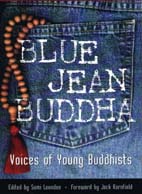 Blue Jean Buddha:
Blue Jean Buddha:
Voices of Young Buddhists
Sumi Loundon, ed. Foreword by Jack Kornfield
Wisdom Publications: Boston, 2001
288 pp.; $16.95 (paper)
This collection of personal narratives is a “literary sangha” of Buddhists in their late teens to early thirties, all reflecting on the place of Buddhism in their 21st-century lives. A diverse gtoup of contriburors tackle issues common to young practitioners, from retreats to romance, from lamas’ robes to Levi’s. ▼
Thank you for subscribing to Tricycle! As a nonprofit, we depend on readers like you to keep Buddhist teachings and practices widely available.